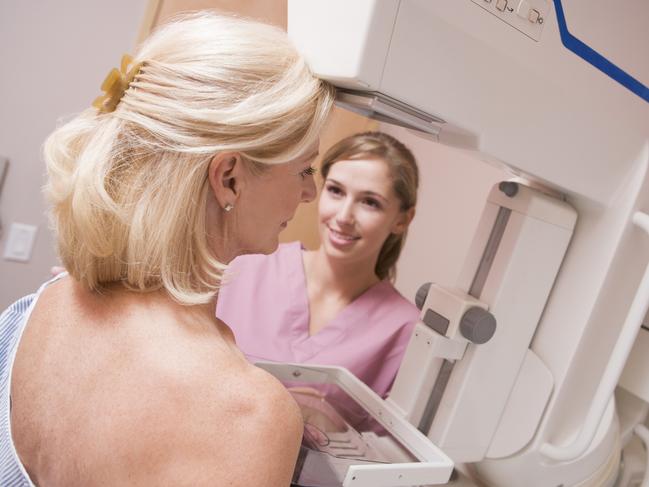New finding on faulty breast cancer gene hailed as ‘milestone’
A breakthrough on why so many women with a faulty breast cancer gene go on to develop the deadly illness is being hailed as a “milestone” finding.
Victoria
Don't miss out on the headlines from Victoria. Followed categories will be added to My News.
A 10-year Melbourne investigation into why 70 per cent of women with a faulty gene develop breast cancer has pinpointed a likely culprit in a “milestone” finding.
Melbourne researchers discovered faulty cells – found only in carriers of the BRCA2 gene mutation – that could turn cancerous and were essentially a precursor to the disease.
The discovery has brought medicine a “big” step closer to better preventive treatment for women who have few options – apart from surgery to remove their breasts and ovaries – and is being hailed as a “milestone” by the lead research body WEHI.
And a cancer drug that targets a vulnerability in these cells already exists – called everolimus – and delays tumour growth in “very promising” laboratory tests.

But WEHI Breast Cancer Laboratory joint head Jane Visvader said she hoped the discovery could help develop more targeted therapies with fewer side effects.
“There is a pressing need for prevention therapies and new strategies to offset these radical surgeries,” Professor Visvader said.
“These breast cancers tend to occur in young women; they can be very aggressive.”
She said while their findings did not mean a new treatment would be available tomorrow, they were “a really important first step” and offered hope to women who wished to delay surgery.
“These findings suggest a new approach for the prevention of breast cancer in these carriers,” she said.

Professor Visvader said the faulty cells found in BRCA2 mutation carriers had a “hyperactive protein production”.
“By tapering that back, the idea is to switch off the growth of these cells of origin so that they don’t go on to form a cancer later on,” she said.
WEHI researcher Rachel Joyce – joint first author with Rosa Pascual – said the majority of tissue samples donated by healthy, faulty BRCA2 carriers had these cells.
The same team that led this discovery, published in journal Nature Cell Biology, previously discovered the likely cell of origin for the other “breast cancer gene”, BRCA1.
Co-author Geoff Lindeman, of WEHI, Royal Melbourne Hospital and Peter MacCallum Cancer Centre, said that led to prevention research internationally – something they hoped to see happen with the BRCA2 finding.
A faulty BRCA2 gene also increases the risk for other cancers, such as ovarian and pancreatic, and can be found in men.
Melbourne oncology nurse Sarah Annett discovered she was a carrier in 2019 after both she and her mum were diagnosed with breast cancer.
She has had a mastectomy and ovariectomy and said knowing a better preventive treatment was available for her daughter, if needed, would “mean everything”.
“It’s like you’ve got a ticking time bomb, and I’ve potentially passed it on to my family,” she said.




